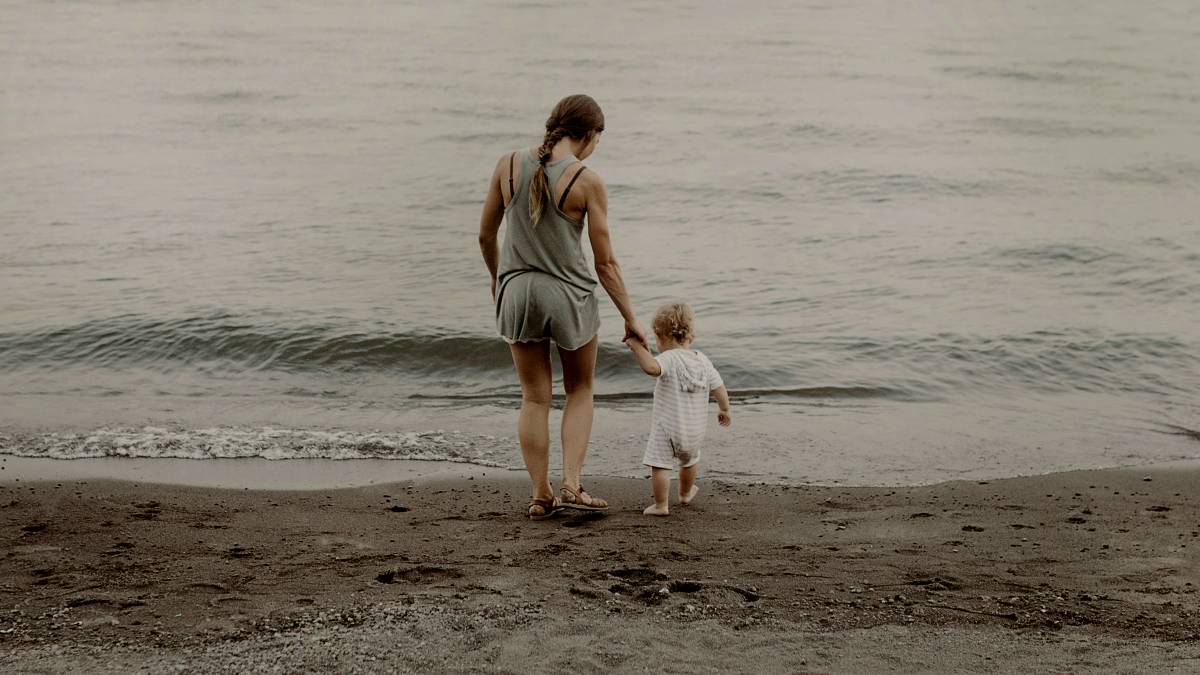
3 Major Myths About 'Gentle Parenting,' Debunked
Don't be confused by these three misleading and unhelpful myths about 'gentle parenting.'

By Mark Travers, Ph.D. | October 02, 2024
If you have ever ventured into parent social media or "Parent Tok," you have undoubtedly heard the term gentle parenting. Theoretically, this balanced parenting style centers around respecting your child's individuality while setting age-appropriate boundaries.
As with many good concepts, internet trolls have twisted this phrase and labeled gentle parents as too permissive. This distortion reinforces the myth that treating children as equals will lead to disastrous outcomes.
To be clear, gentle parenting is not about being a pushover, letting your kids run wild or stepping back entirely. Every time you empathize with your child, set a loving boundary and model the behavior you want to see in them, you practice gentle parenting without even realizing it.
Here are three myths about gentle parenting that you need to stop believing.
Myth 1: A Gentle ParentIs A Lawn Mower Parent
Picture a parent who does everything possible to mow down every obstacle in their child's path—that is lawnmower parenting in a nutshell. Lawnmower parents try to shield their kids from challenges to make their little ones' lives as easy as possible.
While giving one's child an ideal childhood is the aim of any loving parent, lawnmower parenting makes the child's life harder in the long run. A 2009 study shows that children of overprotective parents can struggle with anxiety and social phobias.
One Reddit user explains how poorly they have adapted to life due to lawnmower parenting by saying that they now struggle with a tendency to over-apologize, constantly prove their worth and need second or third opinions in anything they do because they feel like whatever they do is "wrong" or "not proper."
Think about it—if you never let your child face any difficulties, how will they learn to overcome obstacles? It is like teaching someone to swim without letting them get wet.
Gentle parenting, on the other hand, is about being a supportive guide. It is about letting your kids face challenges while providing a safety net. Think of it as teaching them to ride a bike—you hold on at first, but eventually, you let go and watch them soar. You are there to tend to their scraped knees, offer encouragement and help them get back on that bike. Gentle parenting is about building resilience, one wobble at a time.
Myth 2: Gentle Parenting Is Just Permissive Parenting In Disguise
Have you ever seen a child throwing a tantrum in a store while their parent looks on helplessly? That is permissive parenting at work—not to be confused with gentle parenting.
Permissive parenting is all about low demands and high responsiveness. A 2022 study shows that kids raised this way often struggle with self-discipline and behavioral issues due to a lack of guidance from the parental figures in their lives. This can lead to demanding adults who lack self-regulation.
Here are four practical tips a gentle parent could apply to navigate situations like a child throwing a tantrum in the store:
- Redirect behavior. The parent might try to help the child calm down by showing them something in the store that interests them or reminding them of a time when similar behavior did not get them what they wanted, reinforcing its futility.
- Set boundaries. The parent may explain to the child that what they are doing is unacceptable and that if they continue, their actions will have consequences.
- Call a time-out. Forcing the child to take a few minutes away from the situation might help a gentle parent regulate the emotional situation.
- Give age-appropriate consequences. A gentle parent will give appropriate consequences if the child does not stop. Perhaps the child will not be allowed on the next shopping trip due to their actions, or a toy of interest might be taken away.
Myth 3: Gentle Parenting Is Hands-Off Parenting
Some parents take the phrase "sink or swim" too seriously when it comes to their children. This passive approach, also known as "hands-off parenting" is usually motivated by the aim of "toughening up" one's kids. However, passive or uninvolved parenting can leave kids feeling lost and unsupported.
Studies show that children of disengaged parents often struggle with social skills and emotional well-being. These children feel neglected and can often face parentification out of necessity. While more self-sufficient, they often have trouble maintaining or nurturing social bonds.
On the other hand, gentle parenting is all about active engagement. It is about being there for your kids, modeling positive behaviors and offering guidance when needed. It's like being a coach—you are not playing the game for them but you're cheering on the sidelines.
At its core, gentle parenting is about treating your child as an equal. That does not mean you become their friend. It is about showing respect, empathy and understanding. Imagine how you would feel if someone listened to you, validated your feelings and kindly guided you—as a mentor. That is what gentle parenting does for kids.
Are you caring for yourself so you can be the best parent you can be? Take this science-backed test to find out: Parental Burnout Assessment
A similar version of this article can also be found on Forbes.com, here.
